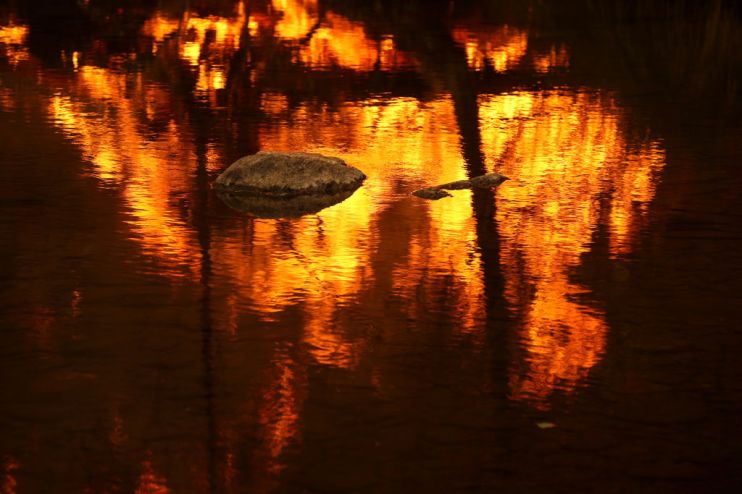West Coast wildfires rage across record areas in the United States, but Silicon Valley thinks it has the answer

Wildfire season in the United States has devastated swathes of the West Coast in a way not seen since the disastrous summer of 2017.
The problem is getting worse across numerous states. This year, 37,803 fires have raged, burning more than 3.4 million acres, both significantly up on last year.
As of August 1, there were 91 fires raging across 12 states in the country, primarily on the West Coast.
The scale of destruction is perhaps best exemplified by the Bootleg Fire in Oregon. Having started on July 6, by the 28 July its catastrophic impact was being felt over an expanse of 413,400 acres.
The fire has already destroyed 161 homes and 247 other structures, and being only 74 per cent contained with full containment not expected until at least 1 October, more devastation is to come.
Whole towns, like Paradise, California was in 2018, are at risk of being lost.
Silicon Valley’s role
Silicon Valley, in more ways than one, finds itself in the epicentre of the fire storm.
And firms are trying to do something about it.
Issues at Paradise, where 86 people died, revolved around the evacuation of citizens. Many did not receive orders to evacuate the area and as such lives were lost. Zonehaven, founded in 2018, is an app that provides the community with vital evacuation updates and orders.
“During an Evacuation, speed is everything. Zonehaven has decreased our reflex time to order an evacuation and communicate updates instantly, saving lives,” says Chief Dave Winnaker of the Moraga-Orinda Fire Dept.
Zonehaven received investment from Splunk Venture’s $50m fund in 2018.
And amidst last summer’s wildfire crisis, Josh Felser, the co-founder of the Freestyle Fund, put out a statement announcing he was leaving to focus his efforts on climate action.
“One of the reasons I’m not leaving California is I think this state has only itself to blame if it doesn’t lead the whole for-profit climate movement,” Felser would go on to say.
Felser was an early angel investor in ClimateAi, which aims to accelerate climate resilience in mission-critical supply chains, with an injection of $25k.
In June, ClimateAi raised $12m in its Series A round of funding from other top investors including actor Robert Downey Jr.’s climate fund.
Meanwhile Startup Rain, based in Silicon Valley, says its artificially intelligent firefighting drones can help prevent future catastrophes. “This is transformative technology,” CEO Maxwell Brodie said.
“If it is us or someone else that does this, it doesn’t really matter. This will happen.”
The “Mark 2” drone that Rain is developing can carry up to 400 pounds of liquid retardant and is autonomous, allowing it access to the most dangerous hotspots.
Read more: Investors sit on record levels of dry powder, says Silicon Valley Bank’s UK boss
The impact
California is better placed than anywhere else in the world to tackle climate change through for-profit institutions and funds.
According to a report published by PwC last summer titled ‘State of Climate Tech 2020′, firms in San Francisco aimed at the climate-action industry between them raised some $6.9bn. That figure is more than triple the amount raised by companies in Boston, the United States’ second largest tech hub.
The impact of wildfires on firms in Silicon Valley and beyond is much the same as that on residents and other businesses. High fire risks have led to power being preemptively cut, leaving thousands in rolling blackouts when supply is thin.
California Independent System Operator (ISO) has asked residents this summer to conserve power in order to avoid unnecessary usage when demand is expected to spike. It is the second summer in a row such demands have been made by the operator, with 2020’s warning marking the first in 20 years.
The climate-action startups reflect both the innovative nature of Silicon Valley and the hyper-profit making edge that exists within the area that makes it so well-placed to lead the fight. “You’re looking at force multipliers,” says Steve Blank, tech entrepreneur and investor in Rain.
“How do we fight this exponential growth (in wildfires) without exceeding the gross domestic product of California?”